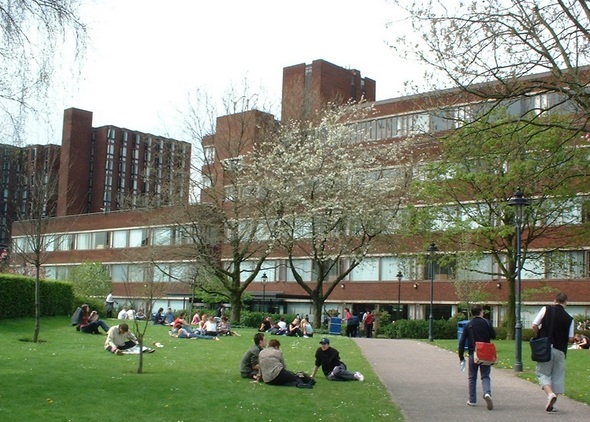Why get a college degree? You would expect a high return on investment (ROI), if you attended Harvard, Yale or MIT. Even if you received a degree from a no name university. A lot of families are thinking about this question, whether you are a high school senior or just graduated. Finding a job in this economy is tough and paying off student loans are tougher without a job. Is college worth it?
 College tuition has increased more than inflation in the last few years thanks to state budget shortfalls. If you want to attend a private university, the cost is approaching the cost of a small home. No doubt about it, a college education is expensive whether you go to a public or private university. Has the value of a college degree changed in this economy? A college degree is no guarantee of a job! What does it take? It is up to the individual to make their lives successful.
College tuition has increased more than inflation in the last few years thanks to state budget shortfalls. If you want to attend a private university, the cost is approaching the cost of a small home. No doubt about it, a college education is expensive whether you go to a public or private university. Has the value of a college degree changed in this economy? A college degree is no guarantee of a job! What does it take? It is up to the individual to make their lives successful.
There are debates whether a college education is worthwhile, but what is a college education? Is it supposed to prepare you for a specific career or job? Even college presidents do not agree about the purpose of a college education. Roughly half feel it teaches work related skills and the rest say they help students grow personally and intellectually. Which is it? If your major was engineering, computer science or accounting, you learned work related skills. Many other majors such as English, social sciences etc. helped you grow personally and intellectually.
As an investment, college has a return on investment (ROI) anywhere from four (4) percent to a high of thirteen (13) percent depending where you went to school. You would expect a high ROI, if you attended Harvard, Yale or MIT. What surprised me, although it shouldn’t, is the highest returns were from the highly ranked state universities such as Cal (Berkeley) and Michigan, but also lesser ranked schools such as College of William & Mary and Virginia Tech. These are statistics were compiled (Businessweek) online based on a thirty (30) year return. Does it make sense for you?
There is no way to verify the information provided and there is no information regarding their degrees or majors. As far as averages go, a college education does increase your earning potential. Emphasis is on your potential! If we all entered a physical training program, I am sure that everyone’s results would be different. Some people do not need formal training in order to succeed. One example is my immigrant parents. There are notable success stories of people dropping out of college and becoming very successful. Bill Gates, Steve Jobs, Steve Wozniak and Larry Ellison are some of those famous drop outs.
If you think you can be one of those exceptions, college is a waste of time and money. How do you know at eighteen (18) years old? By the time you figure it out, you probably wasted a lot of time and money anyway. Is everyone college material? Of course not, but everyone needs more than secondary school in this changing world. I think you should pursue a career that you have skills and knowledge. It certainly should be something you enjoy and are good at it. I cannot think of anything worse than spending thirty to forty years doing something you hate to do.
College or school in general is no different than a career. You should pick a field of study you will enjoy and achieve good grades. When you interview for any position, the employer will ask what was your grade point average (GPA). It is a strong indication of your work habits, knowledge and skills. College is also an opportunity for you to investigate all your career options such as internships, fellowships and part time employment. All these experiences reflect on you as a student and ultimately an employee.
How do you choose a college or university that will help you succeed? First you need to decide what career you wish to pursue and which university will help you reach that goal. At eighteen (18) years old, you will probably change your mind a few times, but keep your options open. If you have good grades in high school, you may get a full or partial scholarship. Another choice is to go to community college for the first two (2) years to lower the cost of college and transfer to a state university.
Does it matter what your major is? I have often heard people say why waste your money on a liberal arts degree. John F Kennedy was a history major, Steve Jobs studied calligraphy, Sally Ride (Astronaut) was an English major and Jill Barad (Mattel CEO) was a English/Psychology major. The new president of CNN is Jeff Zucker (history major)! I have known many people who had liberal arts degrees who went on to run or start companies. It is not the school or your degree that determines success, it is you!
Final Thoughts
Is college worth it? Absolutely! College helps to prepare you for success, but you have to do something with your education. Success and the best return for your investment has very little to do which school you attend or what major you decide to pursue. As a student, success is measured by your grades and what else you accomplished in college. Going to a top ten public university is just as good as a top ten private university. Evaluate the university based on financial aid because the return on investment will probably be better with the less expensive choice. In most cases, a college degree will yield an exceptional return (between 10=13{6fac3e6a3582a964f494389deded51e5db8d7156c3a7415ff659d1ae7a1be33e}) in most cases. I love to achieve that return with all my investments! Why get a college degree?
Photo by: Flickr
SOURCE: KrantCents – Read entire story here.




















